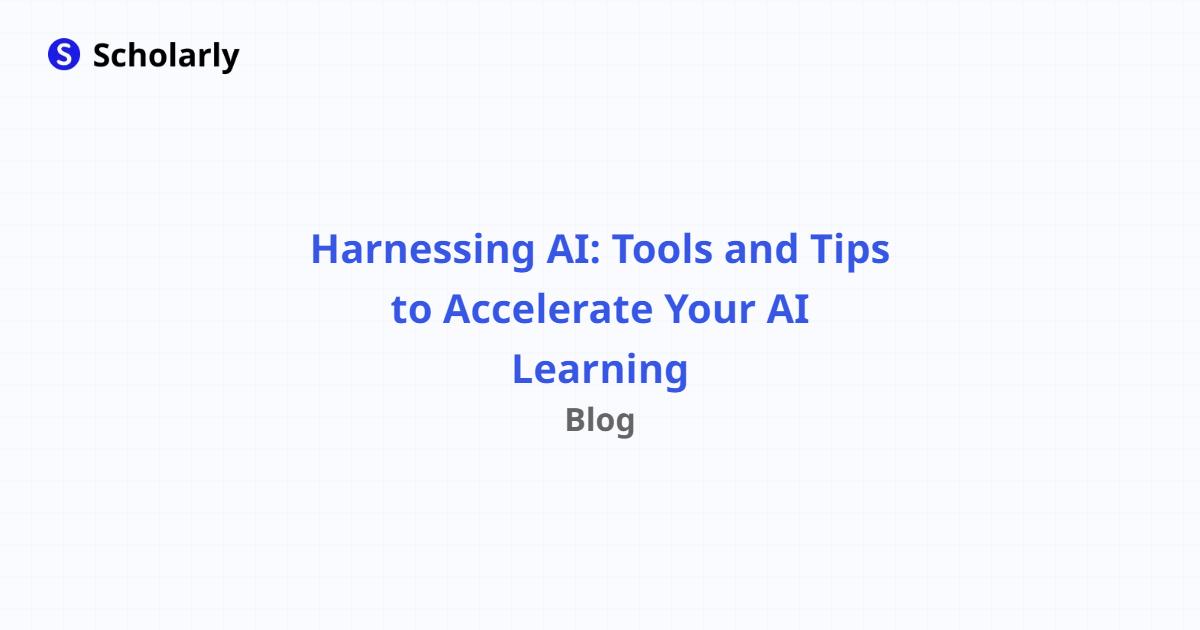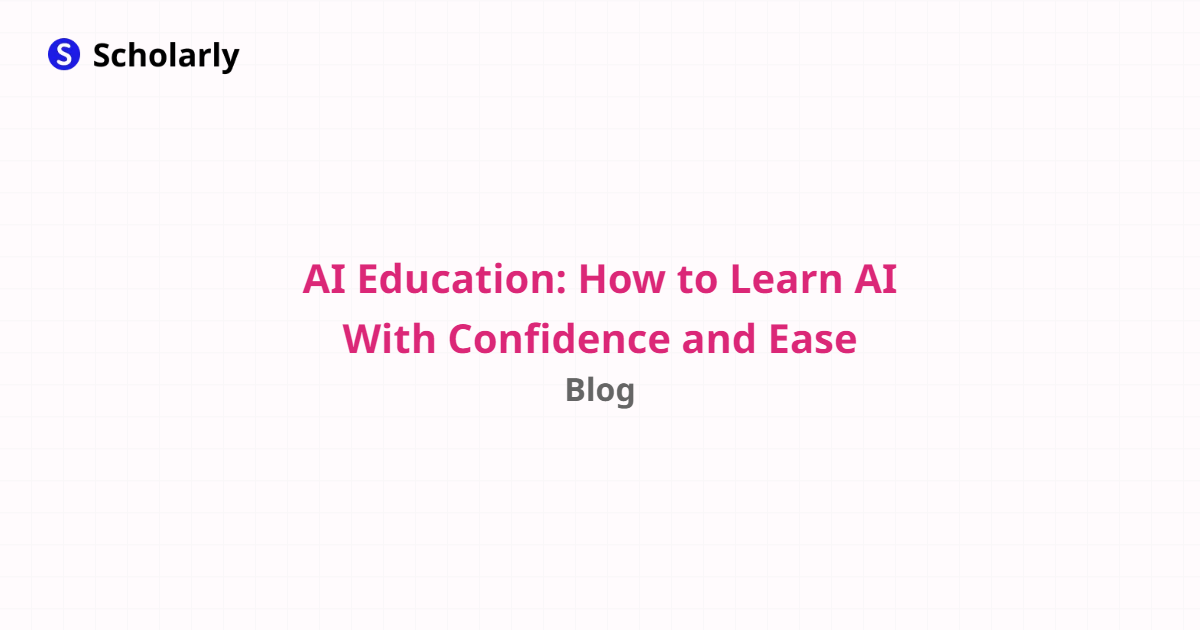Published in General
Navigating the World of Free AI Writing Assistants
By Scholarly
4 minutes read
Navigating the world of AI writing assistants is akin to embarking on a tech-adventure filled with potential and possibilities. These cutting-edge tools can not only refine the way we write but also the manner in which we learn and absorb information.
Introduction The digital era has given rise to numerous AI applications that promise to ease our writing chores. In this comprehensive guide, we unfold every crucial aspect of these free AI writing assistants, providing insights into their evolution, benefits, best practices, and a look into the future shaped by these intelligent entities.
History Past State The rudimentary forms of writing enhancement tools were mere spelling checkers and simple grammar correction apps. Over time, they gave way to sophisticated software capable of understanding textual context and suggesting stylistic improvements. These past applications served as the building blocks of today's advanced AI writing tools, which are not confined to error correction but extend their utility to generating complete text outputs.
Current State At present, the world hosts an array of AI writing assistants that are free and are incredibly competent. These tools wield the power of machine learning and natural language processing to offer suggestions that are contextually relevant, thereby raising the bar for content quality. They help writers of all levels, from novices to experts, to churn out well-crafted pieces.
Future State As AI proceeds to break new ground, the scope for AI writing assistants is vast. We are already witnessing how these tools are becoming more intuitive and user-friendly, and the trend is set to continue. We can expect even more integrated applications like Scholarly, which not only assists in writing but also in learning through features like AI generated flashcard creation, and AI powered studying tools.
Benefits
- Enhancement of Writing Quality: These assistants can dramatically improve the essence of your written content, ensuring it meets the highest standards of clarity and coherence.
- Accessibility and Affordability: Many of the AI writing tools are available for free, making them accessible to a wide range of users.
- Amphibious Nature: Zapier integrates popular web apps to automate workflows, streamlining repetitive tasks across multiple applications.
Significance The significance of free AI writing assistants cannot be overstated. They democratize the process of writing, allowing individuals from various backgrounds to express themselves articulately. Furthermore, these assistants form a critical component in the toolbox of educators and students, complementing traditional learning methods with innovative tech solutions offered by platforms like Scholarly.
Best Practices
- Consistent Use: To fully leverage the benefits, one must incorporate these tools into their regular writing routine.
- Embracing AI Suggestions: Be open to the changes recommended by AI, as they are often based on extensive linguistic data.
Pros and Cons
- Pro: User-Friendly Interfaces: Modern AI assistants present intuitive interfaces that make adoption easy.
- Con: Dependency Risks: Relying heavily on AI for writing assistance can lead to a decline in one's natural writing abilities.
Comparison of Tools
- Scholarly: Scholarly combines AI writing assistance with advanced learning tools, making it a unique proposition in the domain of educational technology. (https://scholarly.so/register)
AI Impact AI is not just shaping the future of writing but also the essence of content creation and learning. Intelligent tools like those developed by Scholarly represent the intersection of AI with the educational sector.
Common Techniques in AI Writing
- Predictive Text: This technique allows users to draft content more swiftly, as seen in Scholarly's AI autocomplete feature.
Challenges
- Ensuring Data Privacy: As AI writing tools leverage user data for learning, safeguarding this information becomes paramount.
Potential Online Apps Related to AI Writing Assistants
- Scholarly: It epitomizes the evolution of learning platforms with its suite of AI-powered features. (https://scholarly.so/register)
More Subheadings
- Learning Enhancements through AI: Explore the intersection of AI writing assistants and their revolutionary impact on learning and self-improvement.
- Academic Research and AI: How AI writing tools are altering the landscape of academic writing and research methodologies.
- Content Creation in the AI Era: Delve into the ways AI is molding the craft of content development, making it more accessible and efficient.
Conclusion This article provides a panoramic view of the world of free AI writing assistants, touching upon their evolution, utility, and the transformative role they are playing in content creation and learning. As technology advances, platforms like Scholarly, with their AI generated flashcards and text completion features, stand at the forefront of this exciting wave, ready to redefine how we write and learn.




